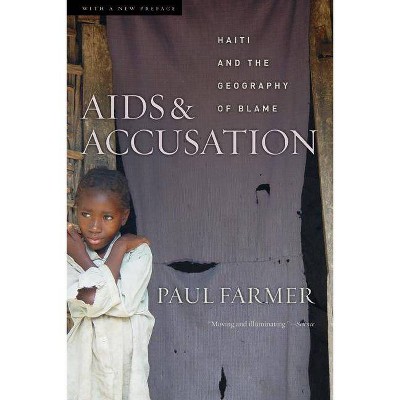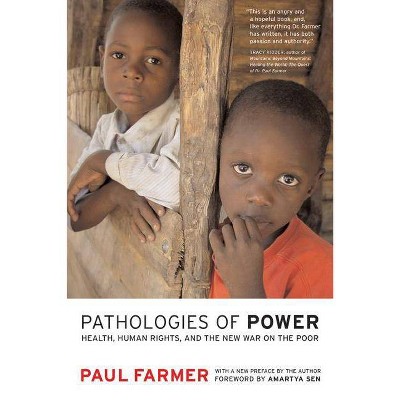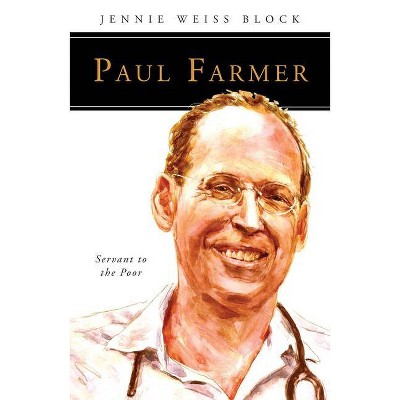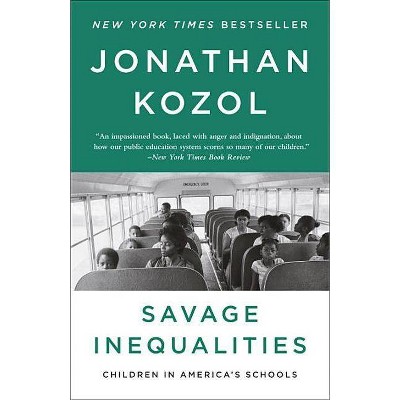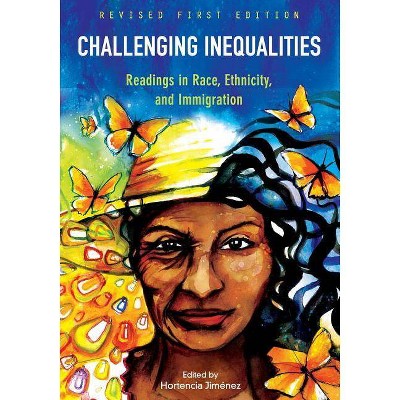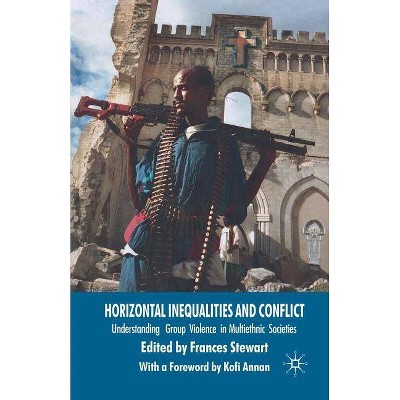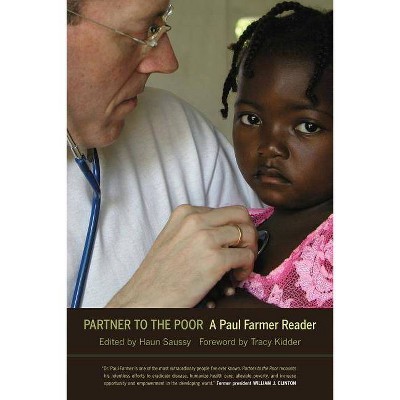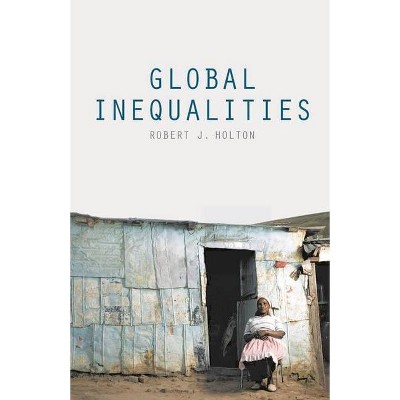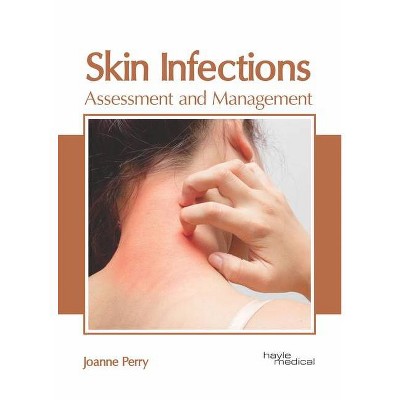Infections and Inequalities - by Paul Farmer (Paperback)
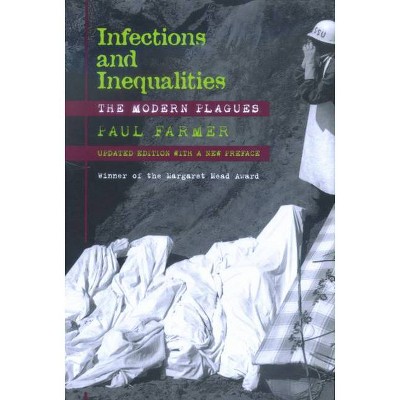
Similar Products
Products of same category from the store
AllProduct info
<p/><br></br><p><b> About the Book </b></p></br></br>"Farmer's work diverges strikingly from the current 'emerging infectious disease' literature, much of which misses essential points about causation that Farmer brings out very well. . . . It is sure to appeal to those general readers attracted to books like Garrett's "The Coming Plague," as well as to readers in medicine, public health, and the sociomedical sciences."--Frederick L. Dunn, M.D. <BR>"Farmer argues against those who would insist that the health problems of the poor require and must await structural changes, that underdevelopment negates the efforts of physicians. He believes there is much that doctors can do, not simply as activists but as physicians."--Randall Packard, author of "White Plague, Black Labor"<p/><br></br><p><b> Book Synopsis </b></p></br></br>Paul Farmer has battled AIDS in rural Haiti and deadly strains of drug-resistant tuberculosis in the slums of Peru. A physician-anthropologist with more than fifteen years in the field, Farmer writes from the front lines of the war against these modern plagues and shows why, even more than those of history, they target the poor. This "peculiarly modern inequality" that permeates AIDS, TB, malaria, and typhoid in the modern world, and that feeds emerging (or re-emerging) infectious diseases such as Ebola and cholera, is laid bare in Farmer's harrowing memoir rife with stories about diseases and human suffering.<br /><br /> Using field work and new scholarship to challenge the accepted methodologies of epidemiology and international health, Farmer points out that most current explanatory strategies, from "cost-effective treatment" to patient "noncompliance," inevitably lead to blaming the victims. In reality, larger forces, global as well as local, determine why some people are sick and others are shielded from risk. Yet this moving autobiography is far from a hopeless inventory of insoluble problems. Farmer writes of what can be done in the face of seemingly overwhelming odds, by physicians and medical students determined to treat those in need: whether in their home countries or through medical outreach programs like Doctors without Borders. <i>Infections and Inequalities</i> weds meticulous scholarship in medical anthropology with a passion for solutions--remedies for the plagues of the poor and the social illnesses that have sustained them.<p/><br></br><p><b> From the Back Cover </b></p></br></br>Farmer's work diverges strikingly from the current 'emerging infectious disease' literature, much of which misses essential points about causation that Farmer brings out very well. . . . It is sure to appeal to those general readers attracted to books like Garrett's <i>The Coming Plague</i>, as well as to readers in medicine, public health, and the sociomedical sciences.--Frederick L. Dunn, M.D.<br /><br />Farmer argues against those who would insist that the health problems of the poor require and must await structural changes, that underdevelopment negates the efforts of physicians. He believes there is much that doctors can do, not simply as activists but as physicians.--Randall Packard, author of <i>White Plague, Black Labor</i><p/><br></br><p><b> Review Quotes </b></p></br></br><br>"<i>Infections and Inequalities</i> provides a theoretical basis for coping with the stark, global setting where medical knowledge exists but available resources are scarce."-- "Yearbook of the Association of Pacific Coast Geographers"<br><br>"[Farmer] weaves a multidisciplinary tale--beautifully readable--and told partly as social history, partly tropical medicine case histories, partly medical anthropology and party autobiography. It is rare for one writer to make use of so many disciplines, professions and genres for both style and content, but Paul Farmer pulls off this mega-mix seemingly effortlessly..."-- "Culture, Health & Sexuality"<br><br>"Farmer provides a well-referenced analysis of everything from cell-mediated immunity to healthcare access issues. The studies outlined show that extreme poverty, filth, and malnutrition are associated with infectious disease and what attitudes and behaviors contribute to the lack of understanding about disease. Arguing that the predictors of patient compliance are fundamentally "economic not cognitive or cultural," he builds a powerful and persuasive argument for a proactive multinational program to defuse the "infectious disease time-bomb." Highly recommended for all medical school library collections and any collection concerned with public-health issues."-- "Library Journal"<br><br>"Farmer's meticulous description of the stories of some patients, and of the circumstances in which they live, reminds us of the enormous suffering of a large part of humanity that has practically no access to the most basic medical care."-- "BMJ: British Medical Journal"<br><br>"Farmer's] message is urgent and relevant for saving millions of lives."-- "Christian Century"<br><br>"This book is a tour-de-force that reaches beyond traditional audiences and presents a strong argument for the significance of anthropology in confronting poverty and disease. . . . Students will find the bok tremendously informative, and many will undoubtedly want to emulate the career described in it."-- "Medical Anthropology Quarterly"<br><p/><br></br><p><b> About the Author </b></p></br></br><b>Paul Farmer</b> is cofounder of Partners In Health and Chair of the Department of Global Health and Social Medicine at Harvard Medical School. His most recent book is <i>Reimagining Global Health</i>. Other titles include <i>To Repair the World</i>, <i>Pathologies of Power: Health, Human Rights, and the New War on the Poor; </i>and <i>AIDS and Accusation: Haiti and the Geography of Blame</i>, all by UC Press.
Price History
Cheapest price in the interval: 23.99 on October 22, 2021
Most expensive price in the interval: 23.99 on November 8, 2021
Price Archive shows prices from various stores, lets you see history and find the cheapest. There is no actual sale on the website. For all support, inquiry and suggestion messages communication@pricearchive.us
